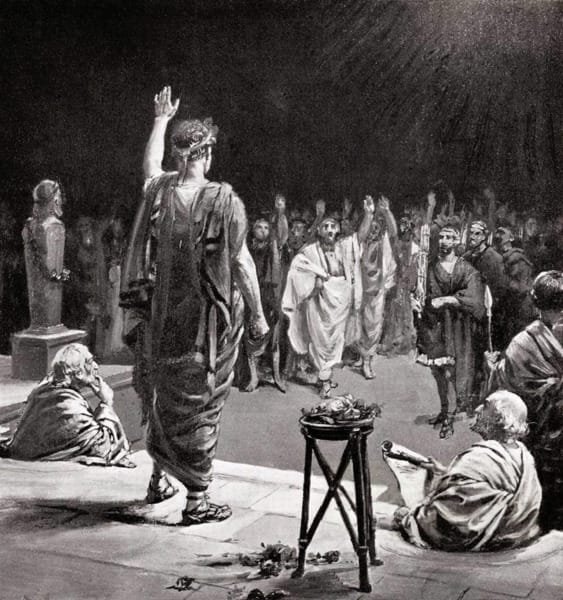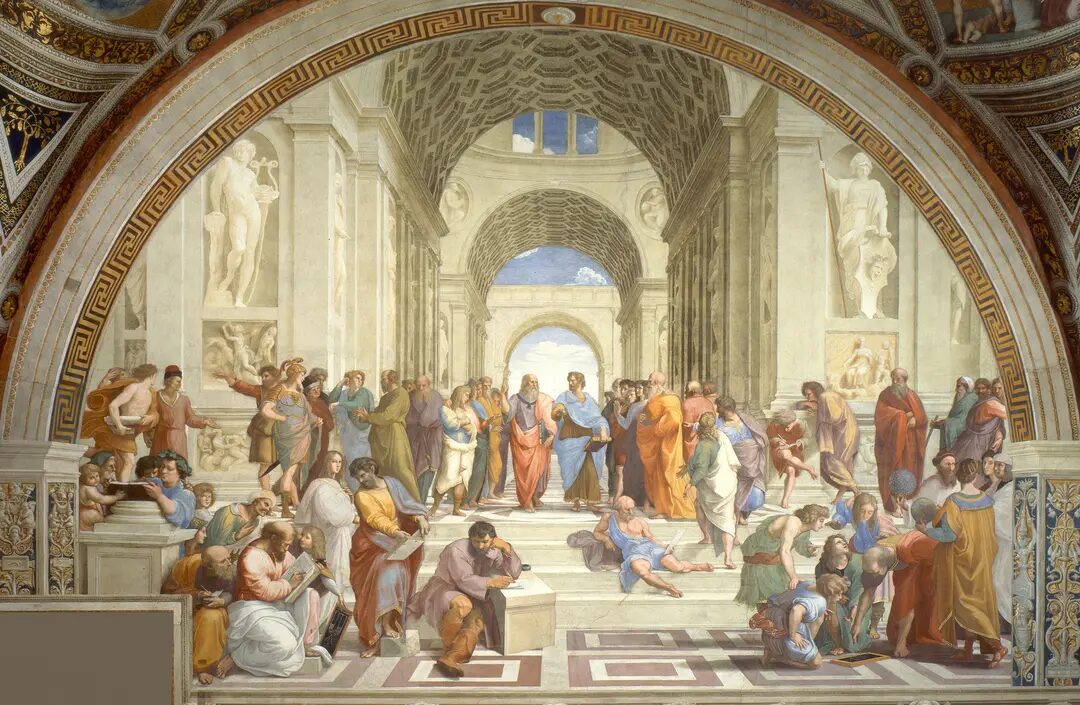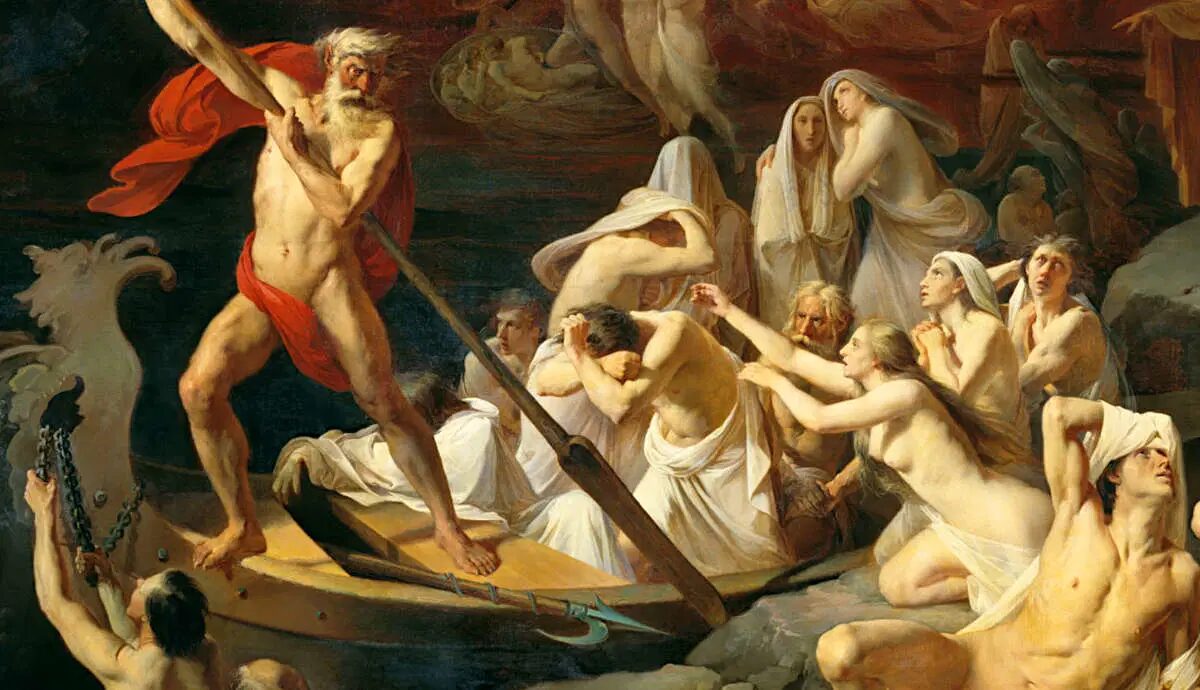In a dramatic episode of Roman history, the young consul Cicero faced a grave challenge with the flawed Catalinarian conspiracy. As the Senate debated how to punish those who plotted to overthrow the Roman state, a deep divide emerged. While some senators pushed for execution without a trial, Gaius Julius Caesar stood apart, proposing long-term imprisonment. His stance was novel for the era, as Caesar argued that living with guilt was a harsher fate than death. Epicurean beliefs, which refuted the existence of an afterlife, supported his viewpoint. Caesar’s arguments were persuasive, but not everyone agreed.
Opposing him was the fervent Cato, a firm believer in Stoicism, who insisted on a life after death. He believed that a severe penalty was necessary for treasonous acts. Their debate highlighted the clash of philosophies in Rome at the time. This incident marked a significant moment in the Roman Senate, reflecting on how religious and philosophical beliefs could sway political decisions. The discussion didn’t just reveal differing opinions but captured the complexity within Roman thought about life, death, and governance.
Key Takeaways
- Cicero and Caesar clashed during the Catalinarian conspiracy.
- Different beliefs about the afterlife influenced Roman politics.
- Roman views on religion and philosophy were diverse and evolving.
Cicero’s Time as Consul and the Plot of Catiline
During Cicero’s term as consul, a major issue arose regarding how to address the conspirators involved in a dangerous scheme against the Roman state. These men, although influential citizens, had plotted to murder him and overthrow the government. The Senate mostly agreed on executing them, feeling their betrayal was severe enough to void their civic rights.
Gaius Julius Caesar‘s Proposal
Gaius Julius Caesar, a young noble, brought a different idea. He suggested long-term imprisonment instead of execution. His argument combined theology and philosophy by claiming there was no life after death, so living in imprisonment would be a harsher punishment than death. Caesar’s stance created a stir in the Senate and made some senators reconsider their decision.
Cato’s Counterargument
Marcus Porcius Cato, differing in view from Caesar, strongly defended the death penalty. As a proponent of Stoicism, he argued that there was an afterlife where the wicked would be punished. Cato believed this justified the execution, as the conspirators would face retribution beyond death. The Senate was persuaded by Cato’s reasoning and decided on execution without trial.
A Heated Dispute
The debate between Caesar and Cato marked a significant ideological clash. At one point, Cato accused Caesar of receiving secret messages from the enemy, which turned out to be a personal note. The incident, although personal, highlighted the tension between the two. This encounter laid the groundwork for their ongoing rivalry, with Cato emerging victorious in this debate, even as Caesar’s influence continued elsewhere.
The Senate Discussion on Crime Consequences
Caesar’s Suggestion for Permanent Confinement
In the aftermath of the Catalinarian conspiracy, Gaius Julius Caesar challenged the Senate’s dominant opinion. He proposed a penalty of long-term imprisonment for those accused of plotting against the Roman state. This was a novel idea in ancient times, where execution was the common response to treason. Caesar argued that a life of imprisonment would be a harsher punishment than death since it eliminates any opportunity for joy or sorrow after life ends.
Caesar’s Argument Against Execution Based on Epicurean Beliefs
Caesar strengthened his argument by drawing from Epicurean philosophy. He suggested that since there is no existence after death, enduring a life filled with hardship in prison is much worse than facing death. Death, he argued, brings a release from all life’s troubles, and should not be considered a punishment. In his view, letting the conspirators live in misery would serve as a more suitable consequence for their actions.

Cato’s Stoic Defense of Capital Punishment
Marcus Porcius Cato opposed Caesar’s proposal with a contrasting belief anchored in Stoic philosophy. Cato argued for the death penalty, asserting that there is an afterlife where wrongdoers are punished. The notion of punishing the wicked post-mortem was integral to his argument. He accused Caesar of corrupting religious traditions, which was particularly significant because Caesar had recently become the chief priest of Roman state religion. Cato’s standpoint ultimately swayed the Senate, resulting in the execution of the conspirators without trial.
The Conflict of Ideologies
Caesar’s Position as Chief Priest
Gaius Julius Caesar, in his role as chief priest, challenged the prevailing ideas of Roman justice after the Catalinarian conspiracy. While many senators thought that execution was the right punishment, Caesar suggested a different approach—life imprisonment. He used philosophical ideas to make his case, particularly those from Epicureanism. This philosophy didn’t believe in an afterlife, arguing that enduring a lifetime in prison was far worse than a quick death.
Cato’s Support for Ancient Ideals
Cato, a staunch supporter of traditional Roman beliefs, took the stand against Caesar’s viewpoint. He drew from Stoic philosophy to argue in favor of capital punishment, claiming that there is an afterlife where the wicked are rightly punished. Cato believed this offered all the more reason to execute the conspirators swiftly. He also pointed out the contradiction inherent in Caesar’s position, given his recent election as chief priest—a position that traditionally upheld Roman religious values. Cato’s powerful defense played a key role in the decision that ultimately sealed the fate of the conspirators.
Personal Stories and Political Tensions
The Incident with the Note: Caesar and Cato
Gaius Julius Caesar, a prominent Roman figure, faced an unexpected moment during a heated debate in the Senate. In the midst of discussions, a note was discreetly handed to Caesar, and he began reading it. Standing beside him, Cato loudly accused Caesar of secretly communicating with the enemy, inciting uproar in the assembly. As the room buzzed with accusations, Caesar offered the note to Cato, who discovered it was actually a love letter from Cato’s sister, Servilia. This revelation added a personal layer to their political rivalry, with Cato dismissively returning the note.
Servilia’s Involvement in the Affair
Servilia, Cato’s sister, played an intriguing part in this drama. Her passionate relationship with Caesar was known, adding complexity to the political scene. The letter she sent to Caesar, arriving at such a critical moment, seemed to be a strategic move, possibly orchestrated by Caesar to catch Cato off guard. This incident highlighted the intertwined nature of personal and political lives in ancient Rome, where alliances and rivalries often spilled over from public forums into private affairs.
How Theological and Philosophical Beliefs Influence Governance
In ancient Rome, theological and philosophical beliefs played a crucial role in shaping governance and political decisions. A significant moment in this regard occurred during the debate over the fate of the conspirators involved in the Catalinarian conspiracy. Despite being Roman citizens from prestigious families, the conspirators faced an unusual dilemma: execution without trial. This event sparked a heated debate in the Senate, showcasing the clash of ideas influenced by different schools of thought.
The young Gaius Julius Caesar argued for a new approach rooted in Epicurean philosophy. He believed that there was no existence after death, making life imprisonment a more severe punishment than execution. According to Caesar, death provided relief from suffering and ended all woes, rather than acting as a punishment. This argument challenged the traditional Roman view and highlighted how philosophical beliefs could be applied to legal and political contexts.
In contrast, Cato the Younger, a proponent of Stoicism, defended the death penalty by claiming that life continued after death and wrongdoers would face punishment in the afterlife. He argued that Caesar’s ideas were a corruption of established beliefs, especially since Caesar had recently become the chief priest of Roman religion. Cato’s position aligned with traditional Roman views, emphasizing the importance of maintaining established religious beliefs in governance.
The Role of Greek Philosophical Influence
These events illustrate how Greek philosophical ideas, introduced to Rome in earlier centuries, began to reshape Roman thought. Homeric epics provided a background where life after death existed but was perceived negatively. However, Plato later redefined this view, suggesting that death was a separation of the immortal soul from the body, leading to potential enlightenment and fulfillment. Plato’s ideas about the soul’s immortality and its ascent to a realm of forms offered a more positive perspective on life after death.

Implications for Political Decisions
Such theological and philosophical influences had tangible effects on Roman political decisions. The debate between Caesar and Cato not only revealed differing views on justice and punishment but also reflected broader cultural and religious tensions. The Stoic and Epicurean philosophies provided frameworks through which Romans evaluated life, death, and justice, showing that personal beliefs could significantly impact public policy.
This interplay of beliefs and governance highlights the diversity of thought in ancient Rome. Although there was a degree of consensus on some religious aspects, debates like these reveal the complexities of Roman perspectives on life and death, and how these ideas continued to evolve with the incorporation of new philosophical insights.
The Variety in Roman Religious Perspectives
In the complex world of Roman beliefs, different interpretations and debates were common. The Roman Senate, faced with deciding the fate of those involved in the Catalinarian conspiracy, was divided over the punishment due to their different philosophical views. Among these senators, Gaius Julius Caesar stood out by proposing life imprisonment over death. He appealed to the Epicurean belief that death was a release and not a punishment, challenging the usual mindset.
Caesar’s perspective was rooted in Epicureanism, suggesting that life after death did not exist and hence a lifetime of imprisonment was harsher than execution. On the flip side, Cato, a strong proponent of Stoicism, countered this by highlighting the presence of an afterlife. He argued that the souls of wrongdoers would suffer after death, advocating for execution as a just end based on these ideas. This philosophical duel underlines how various beliefs about life after death influenced decision-making.
The argument didn’t end with the trial. Caesar’s influence grew as he took up the role of Pontifex Maximus, while Cato focused on defending traditional beliefs. Their clash wasn’t merely political but also intellectual, showing the diversity and complexity within Roman religious thought. While public consensus sometimes existed on wide matters, uncertainty remained about the fate after death. Romans oscillated between notions of reincarnation, eternal peace, or nothingness.
Greek culture had a significant impact on Roman beliefs, particularly after the 2nd century BCE. Roman views evolved as Greek philosophical ideas such as those found in Homeric epics started blending into Roman culture. Philosophers like Plato challenged the grim picture of an afterlife painted by Homer. His ideas suggested that death was a positive transition for those who lived wisely. This shift influenced many, including Roman thinkers who integrated these thoughts into their understanding of the soul and its journey beyond life.
In this ever-changing landscape of Roman religion, life events and afterlife beliefs greatly affected societal norms and justice decisions. Conflicting interpretations created rich dialogues and shaped Roman culture, illustrating the intricate fabric of their worldview.
Maintaining Complexity: Diverse Roman Religious Beliefs
The late Roman Republic saw debates filled with contrasting views on the afterlife and justice. In the famous clash between Caesar and Cato, two religious philosophies shaped their arguments. Caesar, influenced by Epicureanism, argued for imprisonment over execution, saying that death ends suffering with neither pain nor joy beyond. Meanwhile, Cato, rooted in Stoic beliefs, insisted on the existence of an afterlife that rewarded the good and punished the wicked, justifying the death sentence.
The Roman religious landscape was not monolithic. Caesar’s ascension to Pontifex Maximus highlighted his break from traditional religious beliefs, causing tension with the Senate. This tension reflected the broader complexities of Roman religion, where various schools of thought, including Greek influences, contributed to a rich tapestry of belief.
The assimilation of Greek culture into Roman society shaped these discussions. Greek texts like the Homeric epics and philosophies provided insights into life after death, influencing Roman thought. Under these influences, Romans embraced diverse concepts, ranging from grim views of the afterlife to more optimistic visions introduced by Plato and later adapted by Roman thinkers such as Cicero. This blend of ideas illustrates the depth and diversity of Roman religious thought, underscoring that debates over the afterlife were ongoing and complex.
Life After Death in Ancient Greek and Roman Beliefs
Greek Impact on Roman Ideas
Greek culture deeply influenced Roman thoughts about life after death. Romans absorbed Greek philosophic traditions starting around the 2nd century BCE. As these ideas spread, they caused a shift in how Romans viewed the afterlife, moving away from older Roman beliefs and embracing the complexity of the Greek systems. This cultural blending brought about a new understanding of life beyond death within the Roman worldview.

The Harsh Homeric Vision of the Afterlife
The epic poems of Homer such as the “Iliad” and the “Odyssey” portray a somber view of the afterlife. In these works, the souls of the dead reside in Hades and exist as shadows of their earthly selves. Life after death is depicted as a joyless state. Achilles, one of the most celebrated heroes, expresses a preference for a humble life on earth over a grand rule in the underworld, highlighting the grimness of this existence.
Plato’s Challenge to Homer’s Dark Perspective
Plato offered a different picture of the afterlife. He proposed that humans have immortal souls that separate from the body at death. Unlike the bleakness described by Homer, Plato saw death as the soul’s release and a chance to enter a higher reality known as the world of Forms. This outlook suggested that the afterlife could be a positive experience for those who pursued wisdom during their lives. Plato’s ideas greatly influenced later thinkers, including Romans, who began to see the afterlife as a potential for deeper fulfillment rather than mere gloom.
Cicero and the Soul’s Eternal Journey
Cicero, a notable Roman statesman and philosopher, had a keen interest in the immortality of the soul. His views were influenced by earlier Greek philosophy, notably by thinkers like Plato. Cicero believed that human souls were eternal and separated from their bodies when they died. He saw death not as an end but as a transition to a different form of existence.
In Cicero’s writings, he emphasized a kind of afterlife journey where souls took one of two paths. Those who lived virtuous lives pursued a noble path, while souls burdened by vice faced a different destiny. This philosophical perspective was a common theme in his work, reflecting a belief that life after death was an essential part of human existence, supporting the idea that moral actions on Earth affected one’s fate beyond the grave.
The impact of Cicero’s thoughts is seen in both his political career and written works, where he often linked moral behavior to the concept of an immortal soul. His adaptation of Greek philosophical ideas helped shape Roman perspectives on the afterlife, balancing traditional beliefs with insights from foreign influences. This synthesis of ideas captivated Roman society and contributed to ongoing discussions about life, death, and the soul’s enduring journey.
